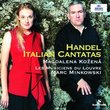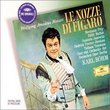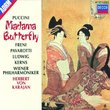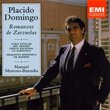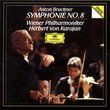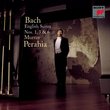| All Artists: Wolfgang Brendel, Wolfgang Amadeus Mozart, Bernard Haitink, Doris Soffel, Orchester des Bayerischen Rundfunks, Brigitte Lindner, Edita Gruberova, Lucia Popp, Marily Richardson, Marilyn Richardson, Heinz Zednik, Peter Hofmann, Siegfried Jerulasem, Siegfried Jerusalem, Waldemar Kmentt Title: Mozart: Die Zauberflöte Members Wishing: 0 Total Copies: 1 Label: EMI Digital Release Date: 1/6/2004 Album Type: Import Genre: Classical Styles: Opera & Classical Vocal, Historical Periods, Classical (c.1770-1830) Number of Discs: 3 SwapaCD Credits: 3 UPC: 077774795180 |
Search - Wolfgang Brendel, Wolfgang Amadeus Mozart, Bernard Haitink :: Mozart: Die Zauberflöte
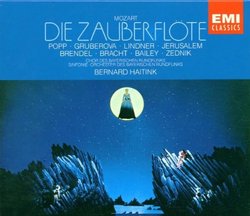 | Wolfgang Brendel, Wolfgang Amadeus Mozart, Bernard Haitink Mozart: Die Zauberflöte Genre: Classical ![header=[] body=[This CD is available to be requested as disc only.]](/images/attributes/disc.png?v=430e6b0a) ![header=[] body=[This CD is available to be requested with the disc and back insert.]](/images/attributes/disc_back.png?v=430e6b0a) ![header=[] body=[This CD is available to be requested with the disc and front insert.]](/images/attributes/disc_front.png?v=430e6b0a) ![header=[] body=[This CD is available to be requested with the disc, front and back inserts.]](/images/attributes/disc_front_back.png?v=430e6b0a) |
Larger Image |
CD DetailsSimilarly Requested CDs |
CD ReviewsNot among the best but still not bad (with stellar Mother an Discophage | France | 09/23/2007 (4 out of 5 stars) "If it hadn't been for the incredibly cheap prices demanded for it on this website's French sister company, this version would not have been on top of my purchasing priorities. I had read welcoming but not overenthusiastic reviews. But on special offer at less than 9 euros for 3 CDs, who could resist? Well, there is much to be enjoyed, especially at that price.
The cast is mostly excellent and at times stellar. I'll start with the firmament. Edita Gruberova is one of the (and possibly the) most exceptional Queen of the Night I have heard (and after some comparative listening, I'd be ready to claim that her two recitals of Mozart Concert Arias makes her possibly the best Mozart soprano ever: Mozart: Airs De Concert and Mozart: Concert Arias). She has both the ease in the stratospheric reaches, the required virtuosity in the runs and the vocal "body" to convey the character's range of emotions, and Haitink's conducting is appropriately fiery in her two arias. Lucia Popp, who began as Klemperer's memorable Queen of the Night (Mozart: Die Zauberflote), here sings Pamina. She is great: in the arias the voice has both the angelic quality and the "body", her tight vibrato giving it the maturity and sensuousness of a real flesh and blood character; she is also wonderfully juvenile-sounding in the spoken dialogues. Zednik is a perfect Monostatos: the timbre is nasal but it suits the character and conveys all its nastiness. Norman Bailey's Sprecher is solemn and deep-voiced, with traces of English accent. Roland Bracht is a good Sarastro, not as deep-grained as some but ample-voiced, noble and kind - actually a bit too uniformly kind in his Act II spoken dialogue to convey the frightening hatred of women that would make the character a little more ambiguous. But his Act I recitative does bring out those less than amiable features. Siegfried Jerusalem is better known as a Wagnerian tenor than as a Mozart singer. Indeed one hears in his voice the characters of the Heldentenor, which works well in the more heroic passages such as the first act Finale recitative, superbly done. Yet, the voice also has a moving sweetness in the final duet with Pamina. But his Act I aria "Dies Bildniss" is disappointing: it's not so much that the delivery is not as effortless above the stave as with the best Mozart tenors, but that his acting of the aria is characterless. He sings the notes, but doesn't make you feel that he's living the emotional situation. And when phrases are repeated (such as "soll die Empfindung Liebe sein? - this feeling, is it love?), rather than taking it as a spur to vary character, Jerusalem just sings it the second time exactly like the first, making it is all very boring. I've read some severe comments on Wolfgang Brendel's Papageno, but I find him more than acceptable, with the creamy timbre and unaffected characterization of the best Papagenos. It is true that he lacks some intimacy in his Act I duet with Pamina, not bringing much difference between forte and sotto voce. Haitink's relaxed tempos in his two arias aren't the most interesting option either, but still one that has some justification and is firmly rooted in a certain tradition. One can perhaps dream of more pointed characterizations in the ensembles, but I hear nothing exceptionable either. But in his Papagena aria in the Finale of Act II, he is unaided by Haitink's pedestrian tempo which robs it of any sense of emotional agitation. Still the duet with Papagena is fine. Brendel also delivers his spoken dialogues with a little too much seriousness and matter-of-factness (and, regrettably, no Viennese accent) to fully convey the comicality, the warm-hearted and earthbound naïveté of Papageno. The normally irresistible "ich bleibe ledig" scene is simply not funny here, and his exchanges with Pamina or with Papagena are just OK. The three Ladies are very similar in timbre and excessively weighted in the direction of mezzo. In principle I am strongly in favor of boys rather than ladies singing the three kids, but on records experience shows that, provided that they sing without vibrato, women at least present the advantage of aurally passing off acceptably for boys while being more pitch-secure that the usual Austrian adolescents, such as those featured here (the Tölzer Knaben). For kids really sounding like KIDS and pitch-right, go to Christie (Mozart - Die Zauberflöte / Mannion, Dessay, Blochwitz, Scharinger, Hagen, Les Art Florissants, Christie). Waldemar Kmentt's timbre in the Priests duet is too nasal for enjoyment. Considering that the spoken dialogues are nicely trimmed (that is, not excessively butchered), and generally delivered by the singers themselves with fine theatrical verve, these minor blemishes would not have been enough to offset this version's great virtues, if it hadn't been, I am sorry to say, for some of Haitink's choices - or absence of them, rather. Mind you, his conducting is nowhere offensive or chocking in the way Harnoncourt or Norrington, or even Klemperer or Böhm can be - and I sort of wish it was. It does attain genuine grandeur and awe-inspiring solemnity in the Two Armored Men scene, almost equal to Böhm's - but not quite, as Peter Hofmann's nasal timbre is no match to James King's glorious voice (Mozart: Die Zauberflöte [The Magic Flute]). As mentioned, the Queen of the Night arias are also suitably fiery, and the Quintets and Monostatos aria are appropriately animated. But oftentimes Haitink is simply so unimaginatively middle-of-the-road and, especially in Act I, so laid-back to the point sometimes of laziness, that he becomes bland. Things improve with the Act I finale, and other than the passages mentioned Act II is fine, but that wrong-foot departure leaves its mark. Overall then, because of the lack of a really strong and personal vision at the helm, this version is not equal to the best (in my opinion, Christie and Solti II: Mozart - Die Zauberflöte (The Magic Flute)), but still indispensable to the Flute collector for Gruberova and Popp, and as a budget version it is one of the best. " |

